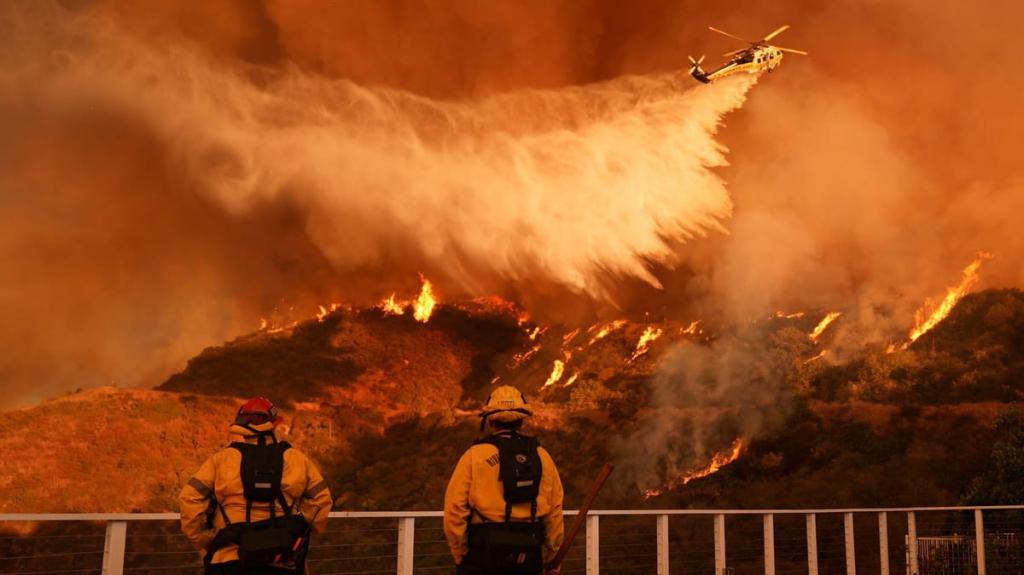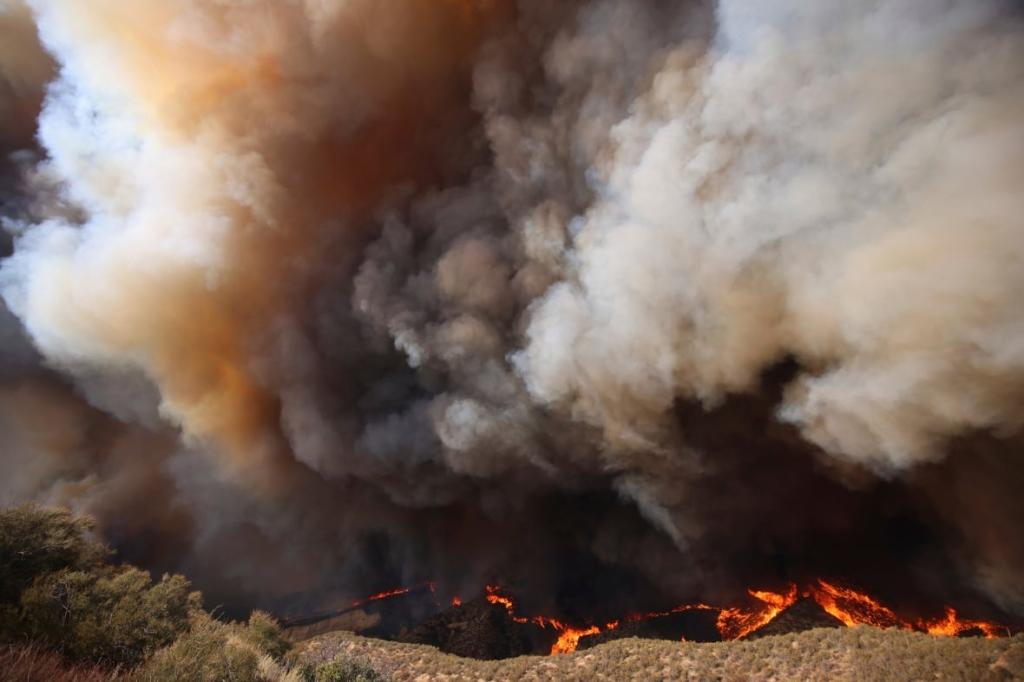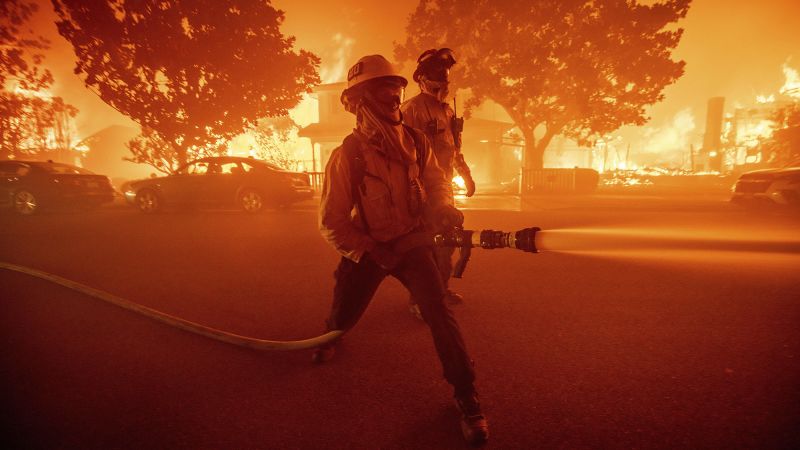Battling Wildfires in Germany's Harz Mountains
Discover how firefighters are battling wildfires in Germany's Harz Mountains and the lessons learned in the face of climate change challenges.
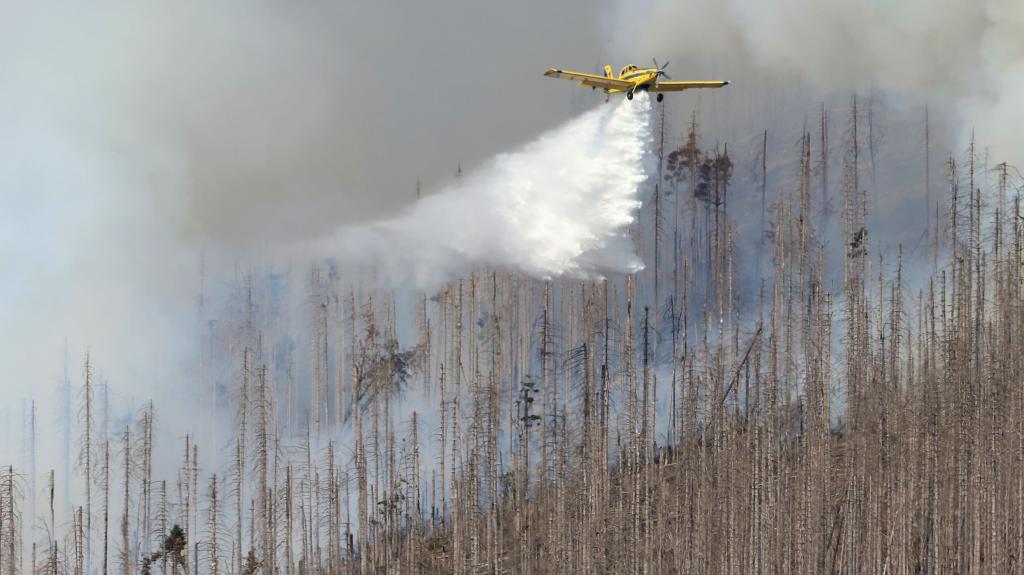
Key Points
- Firefighters are intensifying their efforts to combat a massive forest fire in Germany's Harz Mountains
, highlighting the challenges posed by climate change.
- Aerial resources, including helicopters and planes, play a crucial role in the firefighting response, showcasing the importance of teamwork in these emergencies.
- The recent wildfires serve as a reminder of the need for better forest management practices and proactive measures to prevent future blazes.
The beauty of Germany's Harz Mountains, particularly the iconic Brocken summit, is sometimes clouded by an unforeseen tragedy—devastating forest fires. As temperatures rise and weather conditions become increasingly erratic, the nation finds itself grappling with the urgent challenge of wildfires, compelling a heroic response from firefighters and the community alike. Recent incidents have underscored the importance of vigilance, preparation, and teamwork in these critical situations.
A Mountain on Fire
Since early September, the Harz region has witnessed a massive forest fire that has forced local authorities to evacuate approximately 500 individuals. The fire quickly merged from several smaller outbreaks into a large inferno, affecting an area estimated at 1,000 meters long and continuing to threaten the verdant landscape. As firefighters rushed to the scene, the gravity of the situation became evident—the Brocken and its surrounding forests had become a battleground.
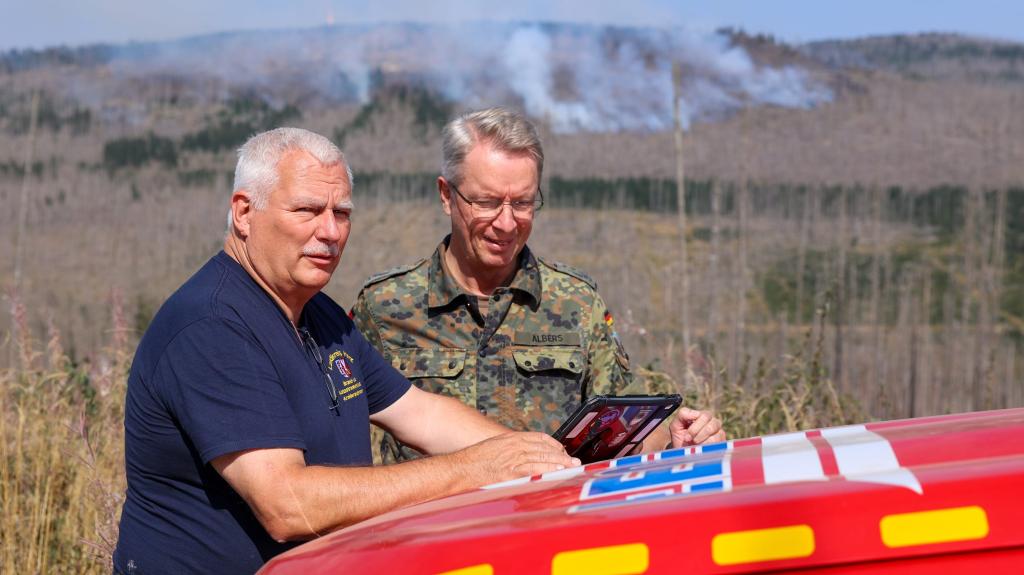
The Fight on the Ground and in the Air
Authorities deployed over 150 firefighters, who worked tirelessly through sweltering summer heat and difficult terrain to contain the flames. They were supported by aerial resources including drones, firefighting planes, and helicopters, showcasing the crucial role of technology in modern firefighting efforts.
Michael Randhahn-Schülke, a spokesperson for the district, emphasized the collaborative effort saying, “This is teamwork: water from the air and the comrades on the ground”. The helicopters, equipped with large containers capable of carrying up to 800 liters of water, played a vital role in suppressing the fire at hard-to-reach hotspots. However, despite their efforts, the inferno raged on, hinting at the challenging nature of the task at hand.

The Impacts of Climate Change
The rippling effect of climate change on forest fires cannot be overlooked. This year marked a soaring increase in summer temperatures, with the summer of 2024 recorded as the hottest on historical record. These changing climate patterns create more favorable conditions for wildfires to ignite and spread. As experts warn, the impact of human-driven climate change elevates the risks we experience today.
Not only does the escalation in temperatures increase the likelihood of fires starting, but the subsequent challenges for containment efforts also multiply, as evidenced by the current conflagration in Harz. The region suffers from dry spells and inadequate rainfall, leading to a perilous buildup of fuel from dry underbrush and dead trees.
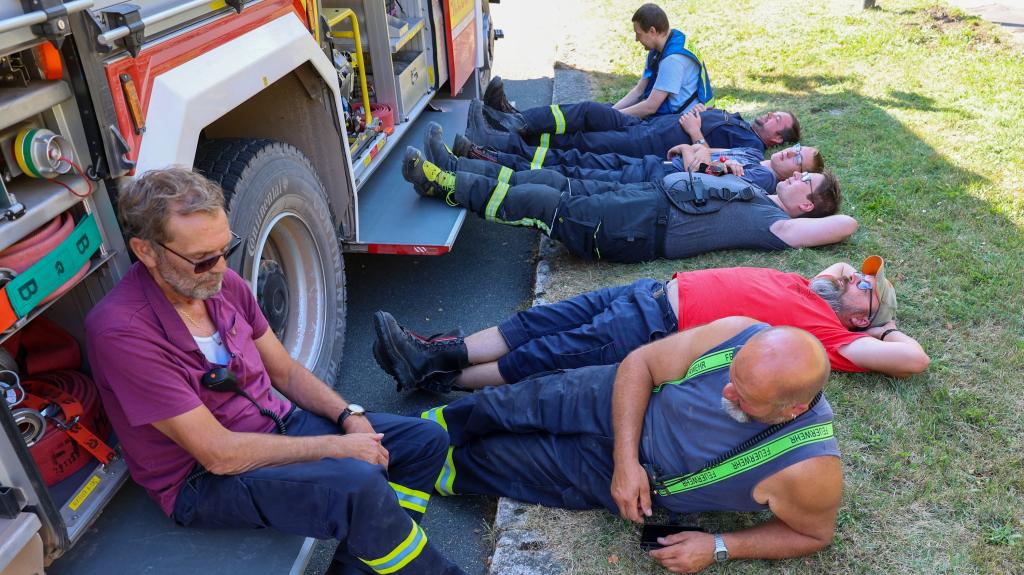
Lessons Learned and the Path Ahead
This recent wildfire episode is not an isolated incident; it serves as a stark reminder of the ongoing threats posed to natural habitats and human settlements by wildfires across Germany. With each fire, valuable lessons emerge—not just about firefighting tactics, but about forest management and preventative strategies. Plans for proactive measures, including managing deadwood and improving firebreaks, are essential for building resilience against future blazes.
Furthermore, the question of how to balance forest conservation and fire management practices remains critically relevant. While the National Park aims to preserve its natural state—including maintaining areas of deadwood vital for ecosystem health—fire safety must coexist with ecological priorities.
In wrapping up, it is evident that the fight against wildfires in the Harz Mountains is multi-faceted, requiring not only heroic efforts on the ground and in the air, but also a broad societal commitment to climate action and sustainable land management practices. As we rally behind our firefighters and support ongoing initiatives, we can work collectively towards a safer, more resilient future.
